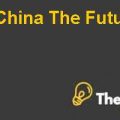Sustainable Business Strategy for Unilever Case Study Solution
Introduction
Sustainability has become a pressing issue for companies across various industries in recent years, driven by growing awareness of the social and environmental impacts of business operations. According to a 2021 report by McKinsey, 64% of consumers globally now consider a company's environmental and social impact when making purchasing decisions, up from 51% in 2019.
The same report also found that 53% of consumers would pay more for sustainable products, up from 35% in 2019. However, Unilever is a multinational consumer goods company that operates in over 190 countries. This case study will explore Unilever's sustainable business strategy and evaluate its capabilities, including its financial position, value chain, and current generic strategy. The case study will also analyze the challenges faced by the FMCG industry and the sustainability concerns that Unilever faces.
Unilever, a multinational consumer goods company, has recognized the importance of sustainability and taken a proactive approach to address it. According to its Sustainable Living Report 2020, Unilever's sustainable living brands grew 69% faster than the rest of the business, representing 75% of the company's growth in 2020. The report also states that Unilever's greenhouse gas emissions from its operations have decreased by 61% since 2008, despite the company's sales doubling in that time.
Unilever has set ambitious sustainability targets, including reducing its greenhouse gas emissions to net zero by 2039 and achieving a deforestation-free supply chain by 2023. The company's sustainable business strategy is based on the belief that sustainable products and practices are not only good for the environment but also good for business. By creating sustainable products that meet consumers' needs, Unilever aims to create a positive impact on society and the environment while also driving growth and profitability.
The Industry
Challenges Faced and Competition Pressure
The FMCG industry faces numerous challenges, including increasing competition, changing consumer preferences, and regulatory pressures. Unilever faces competition from other major FMCG companies such as Procter & Gamble, Nestle, and Colgate-Palmolive. Unilever, like many other companies in the Fast-Moving Consumer Goods (FMCG) industry, faces several challenges.
Some of the key challenges faced by Unilever include changing consumer preferences, increased competition, price volatility of raw materials, regulatory pressures, and sustainability concerns. To stay competitive, Unilever has had to adapt its product offerings and invest in research and development to create products that meet the evolving needs of consumers.
In addition, Unilever operates in a highly competitive industry, where intense competition exists among many well-established players such as Procter & Gamble, Nestle, and Coca-Cola. The industry is characterized by high levels of rivalry, and companies must constantly innovate and invest in new products and marketing strategies to remain competitive. Unilever has responded to this challenge by investing heavily in research and development and by acquiring innovative start-ups to gain a competitive edge.
Price volatility of raw materials is another major challenge for Unilever, as the cost of key ingredients such as palm oil and soybeans can fluctuate significantly due to factors such as climate change and geopolitical instability. This can impact the company's profitability and make it difficult to plan for the future. To mitigate this risk, Unilever has established sustainable sourcing practices and works closely with suppliers to ensure stable prices and long-term relationships.
Regulatory pressures and sustainability concerns are also significant challenges for Unilever. Governments are increasingly implementing regulations aimed at reducing carbon emissions and protecting the environment, which can increase costs for companies that do not prioritize sustainability. Unilever has responded by setting ambitious sustainability targets and investing in sustainable practices throughout its operations. In terms of competition intensity, the FMCG industry is characterized by high levels of rivalry among competitors.
2.2. Analysis of the External Environment – PESTEL
The PESTEL analysis of the FMCG industry includes Political, Economic, Social, Technological, Environmental, and Legal factors. For Unilever, this analysis highlights the importance of sustainability and environmental concerns.
Political Factors:
Political instability and regulatory changes in different markets have created challenges for Unilever in the past. For example, in 2017, the company faced political and economic instability in markets such as Brazil, South Africa, and Russia. These challenges affected the company's financial performance, as well as its ability to implement its sustainable business strategy. Political factors will continue to affect Unilever's operations in the future. For example, the impact of Brexit on the UK market remains uncertain, which could create challenges for Unilever.................
Sustainable Business Strategy for Unilever Case Study Solution
This is just a sample partial case solution. Please place the order on the website to order your own originally done case solution.













